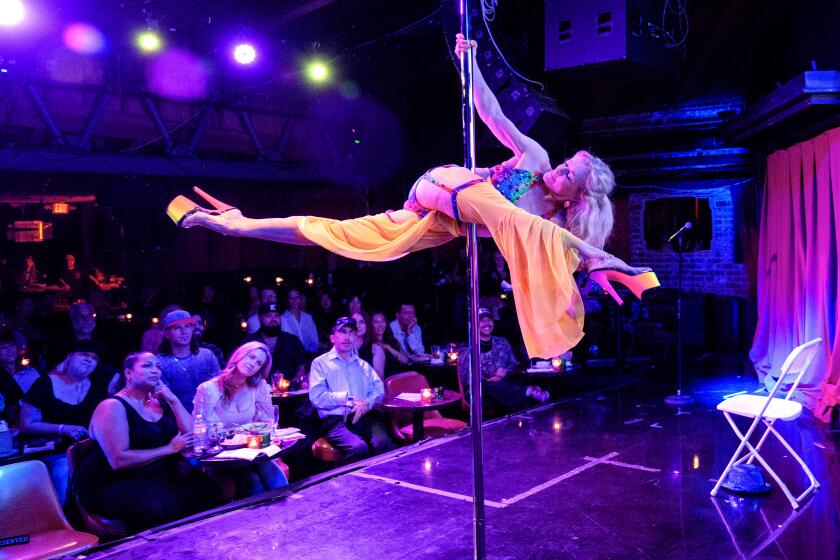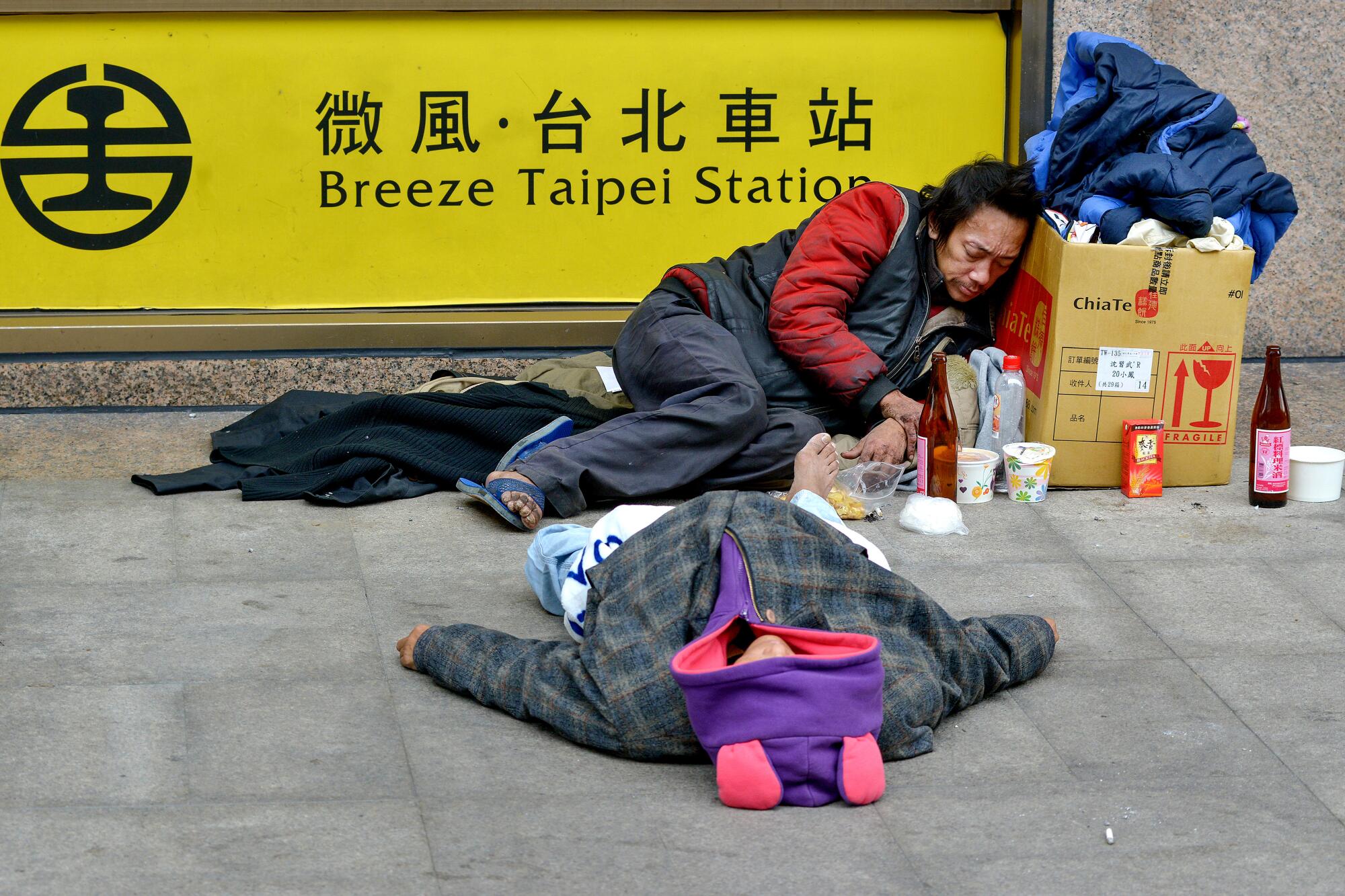
TAIPEI, Taiwan — The wine is meant for cooking. It is salty and pungent. It costs less than $1 a bottle.
By 8 a.m., the residents of Bangka Park’s northeast corner had downed a fair amount.
“I’m the grandma of this park!” a woman with missing teeth proclaimed.
In another corner, people sat quietly, the winter morning’s edge unblunted by alcohol. A brown dog named America dozed on a comforter.
Hsu Chong-chi broke into a grin, his wispy salt-and-pepper beard quivering, as he considered the strange turn his life had taken.
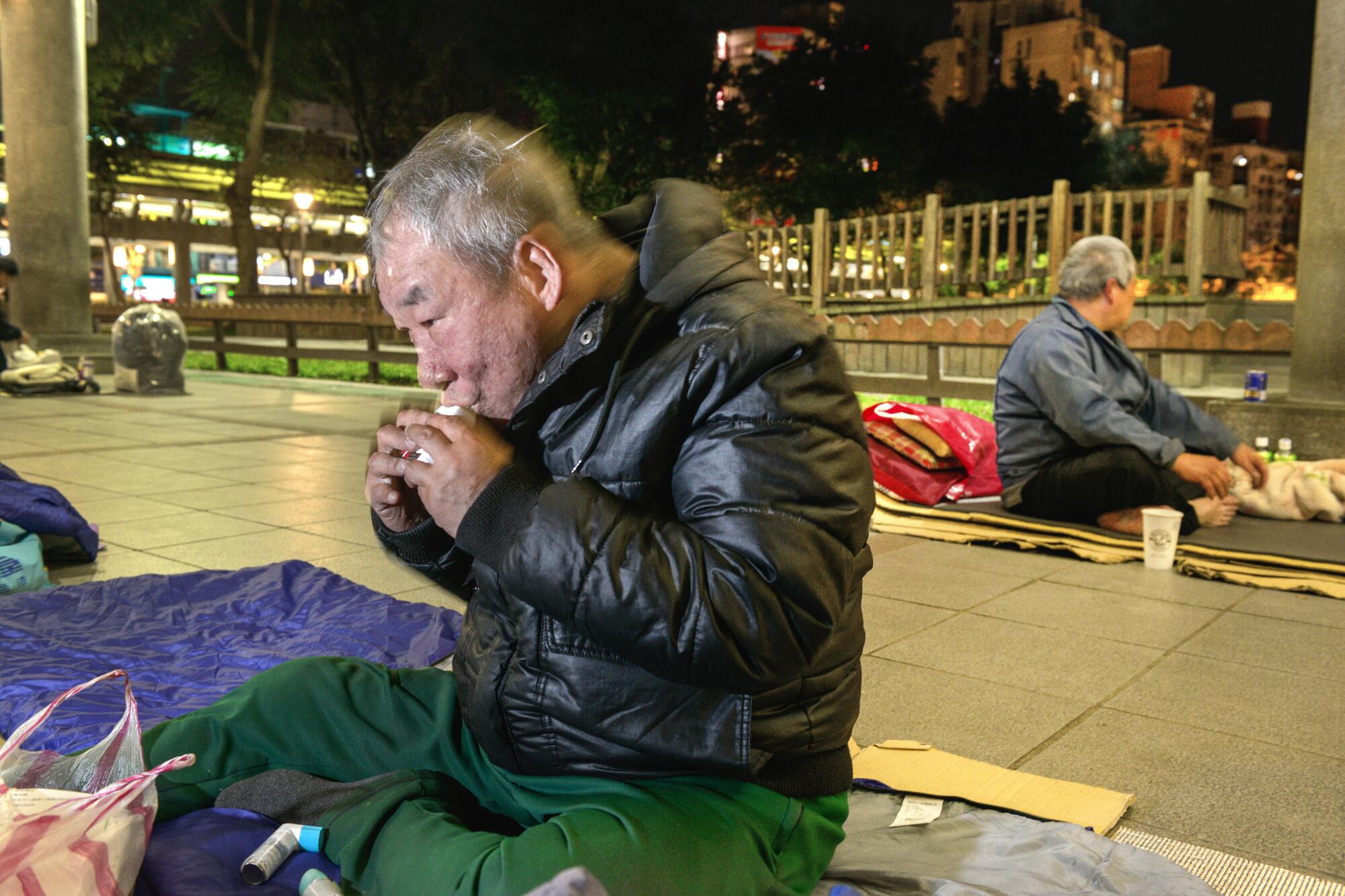
For decades, he had worked as a picture framer and cared for his elderly parents.
Now, everything he owns fits in a government-issued duffel bag. At night, he unfurls a thin blue sleeping bag with a cardboard box as a cushion. On weekends, he waves advertising signs on street corners, earning about $25 a day.
“I have nothing. I’m worried about starving,” he said, his expression turned sober.
In Taipei, Taiwan’s prosperous capital, an apartment in an upscale part of town costs nearly $800,000. Young people line up for $7 boba tea with real gold flakes. Yet here, homelessness is a rare misfortune, not an epidemic spilling onto the sidewalks of wealthy neighborhoods.
About 650 people are homeless in the city of 2.5 million, according to official counts — a number that has held steady over the last decade and is dwarfed by Los Angeles’ 41,000.
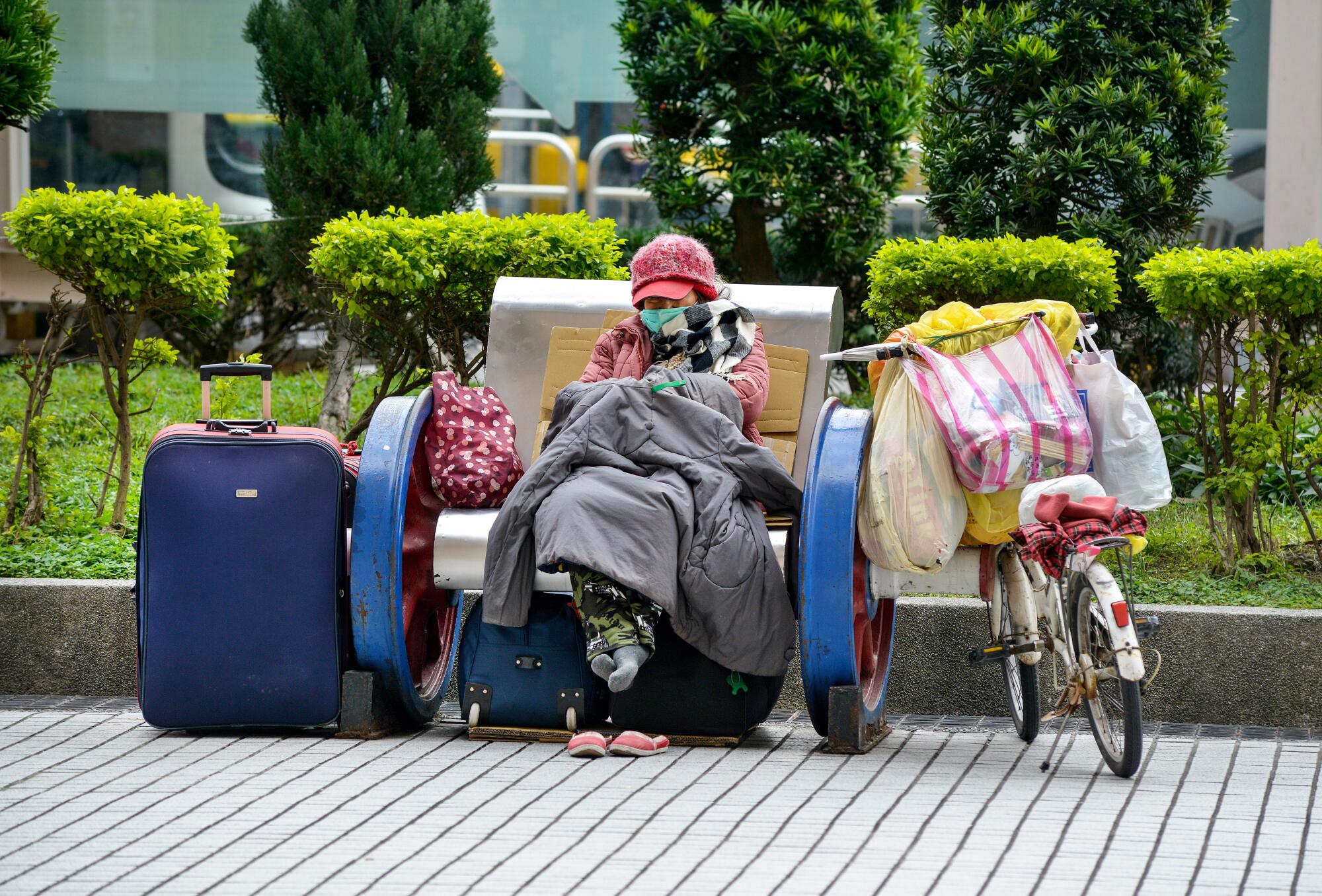
The reasons cited by experts boil down to affordable housing and family ties. The rent for a shabby room is within reach for most workers, and a strong tradition of looking after elderly parents still persists.
In addition, universal healthcare ensures that no one goes bankrupt over medical bills.
The small homeless population is concentrated in Bangka Park and the main train station. In their daily routines, most Taipei residents do not come across “wandering people” or “street friends,” as they are called in Mandarin.
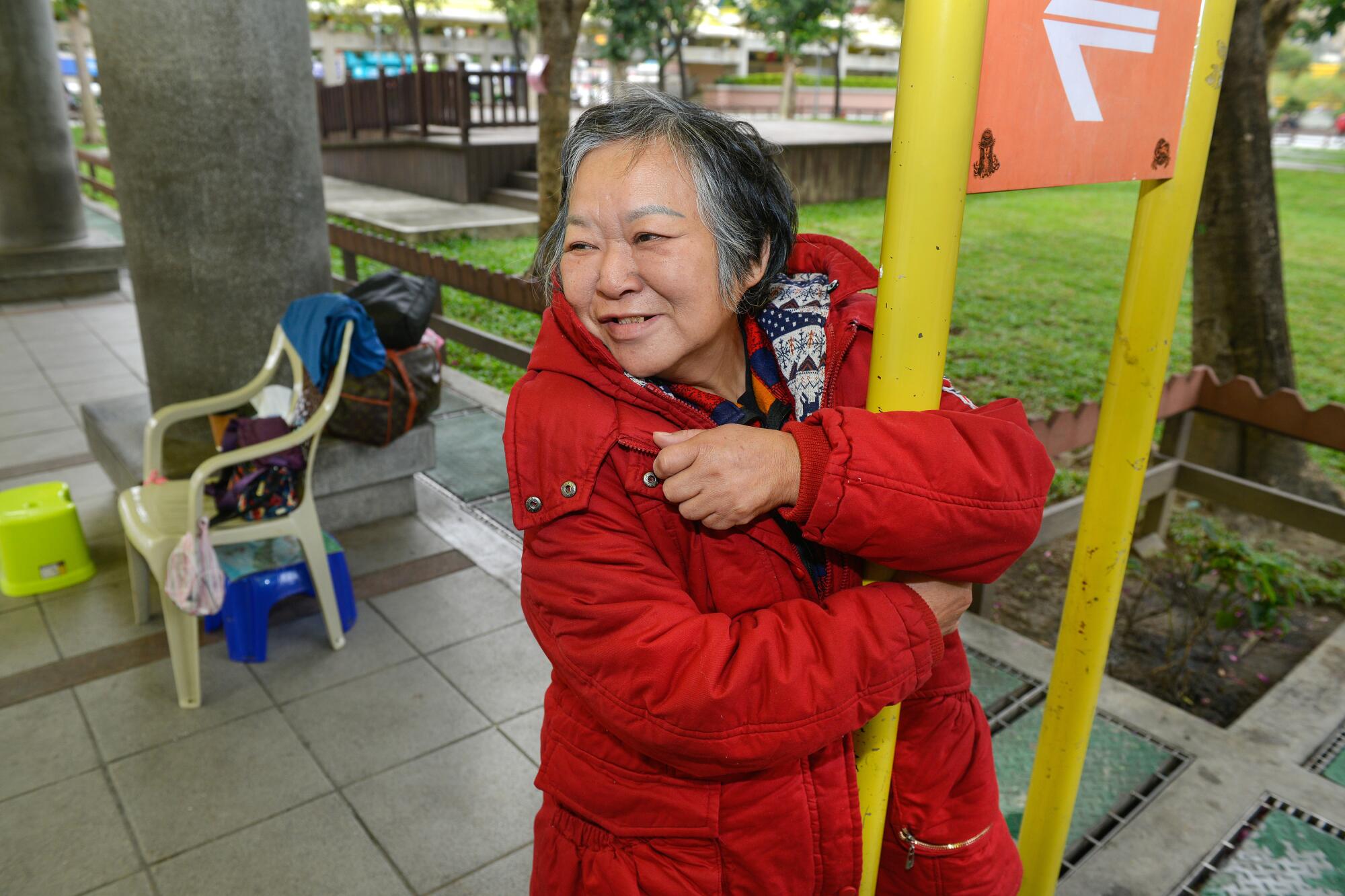
In the company of so few, the shame cuts deep. One man shows up at family gatherings without telling his sisters he sleeps in the park. Others desperately await their 65th birthdays, when benefits for low-income seniors kick in.
Hsu will turn 65 in February. He wonders if he will last that long.
::
In a city social welfare center near Bangka Park the following week, people slept on the floor near the elevator, around the reception counter and next to racks of donated clothing. A man stumbled in and tripped over someone.
“Are you drunk?” a staff member asked, guiding the newcomer to the restroom.
Homeless people converge on the center for showers, hot meals and counseling. That night, with the temperature in the low 50s, it was doubling as a shelter.
Through testing and contact tracing, Taiwan had kept the novel coronavirus from spreading. Services for the homeless population, provided by the city and nonprofits, had mostly continued as usual during the pandemic, with outreach workers handing out soap and educating people about the virus.
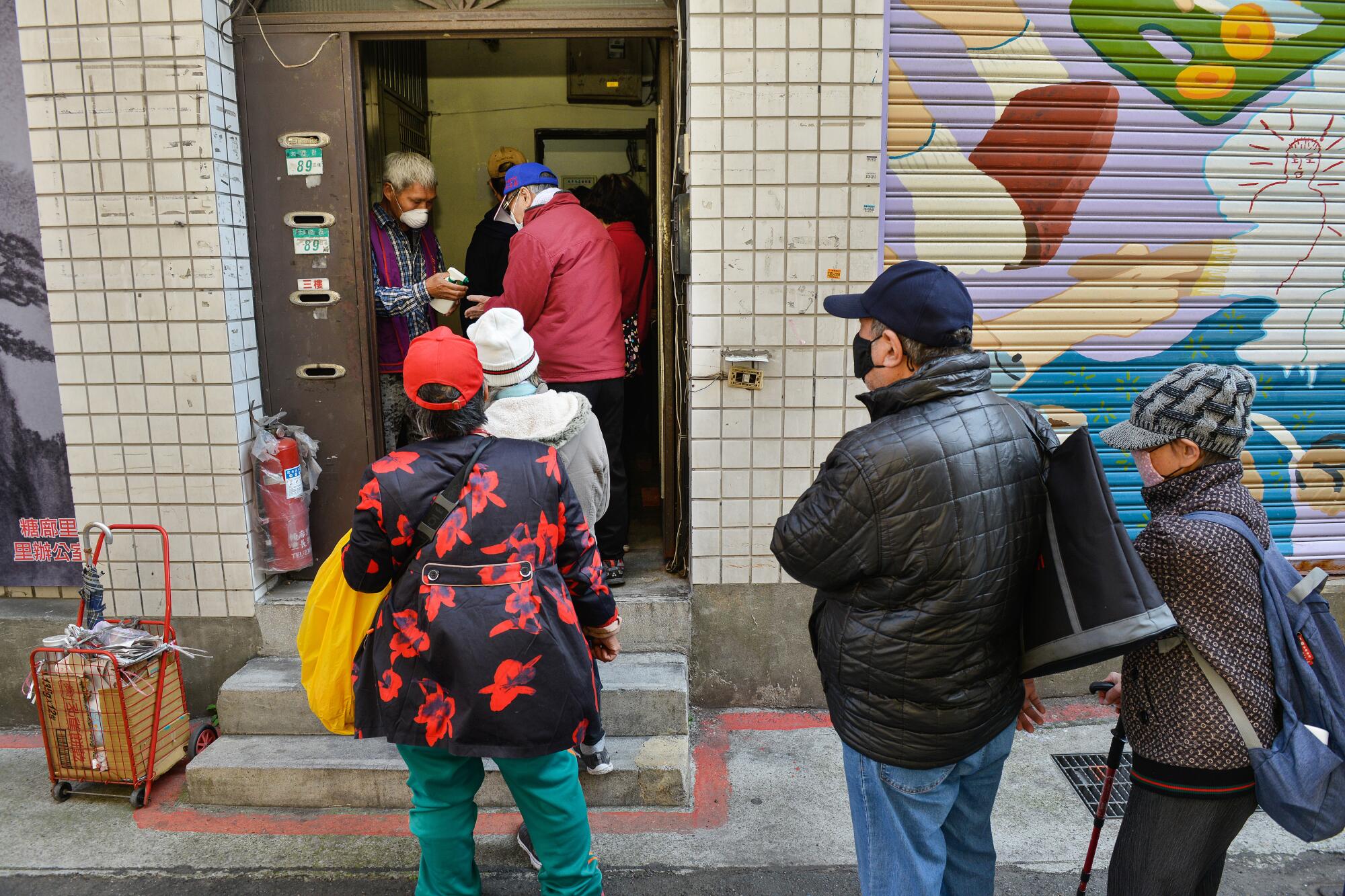
Each year, city social workers help about 100 people find work and housing. At one city shelter, residents head out each day to their full-time jobs.
As they graduate to living independently, more arrive to take their place. Others, like Hsu from Bangka Park, refuse to set foot in a shelter.
“When you go in, they just close the metal door,” Hsu said. “I have asthma. I can’t handle being locked up.”
Like Hsu, those who fall through the cracks are often older, childless and physically infirm. About 1 in 5 homeless people in Taipei is mentally ill.
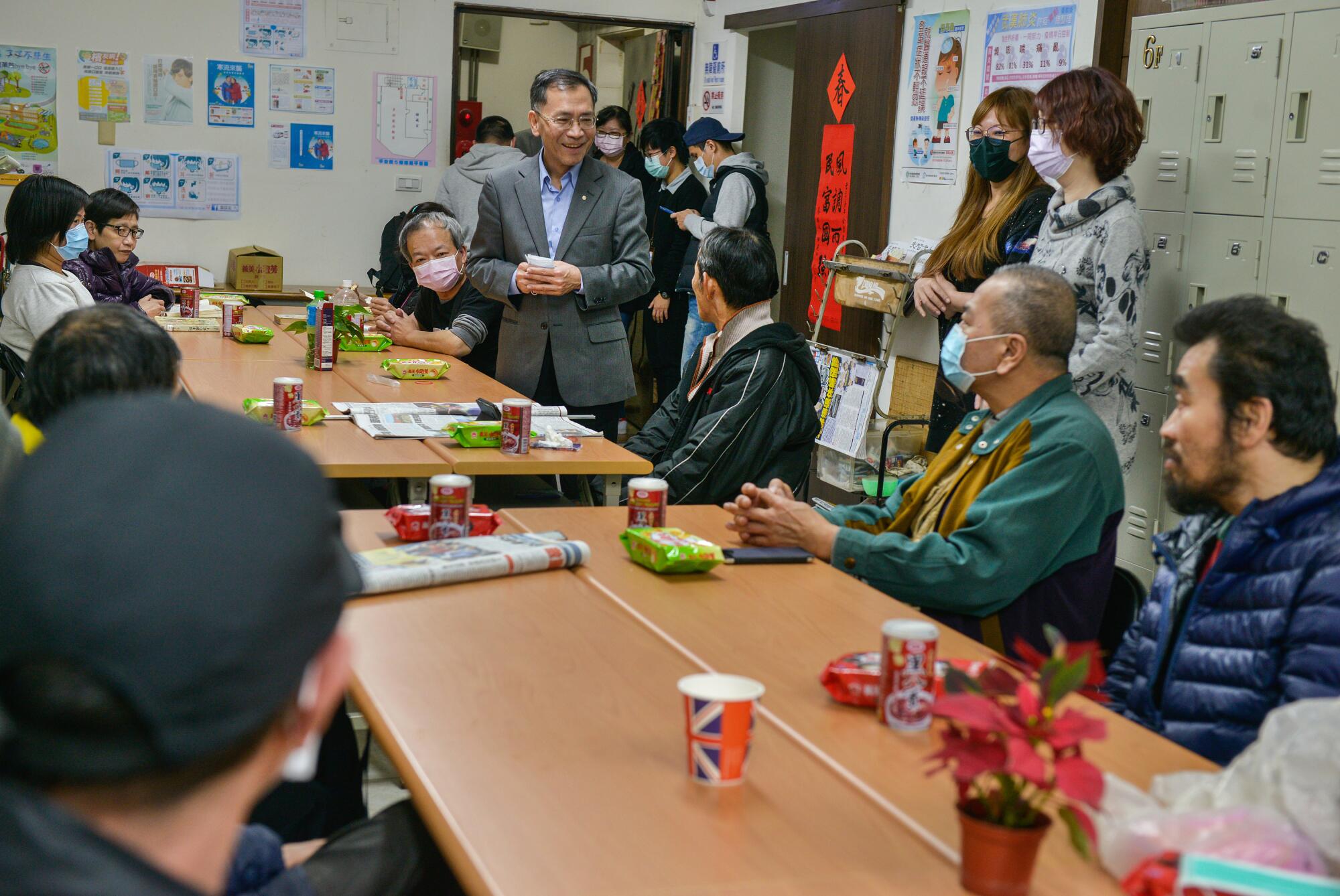
Tsai Ping-kun, a deputy mayor of Taipei who oversees social welfare, said city officials have worked with homeless residents to keep their living areas clean and foster mutual respect, both at Bangka Park and the train station.
“So many visitors come to Taipei, and the first thing they see is, ‘Wow, this is a friendly city, a prosperous city, that coexists with homeless people, gets along with them and prospers with them,’” Tsai said. “This really is an indicator. Is this a progressive city? You need to look at how they treat homeless people.”
But Shi Yi-shin, an assistant team leader with the Zenan Homeless Welfare Foundation, said the government does little for an especially vulnerable group: people ages 55 to 64. In Taiwan, children are legally obligated to take care of their parents. If there is a rupture in that relationship, the elders must sue their children to receive benefits.
Shi is among the nonprofit leaders who believe that the official homeless count is understated and that the numbers may be increasing.
“There’s nothing at all for them,” she said. “That’s why they need us.”
::
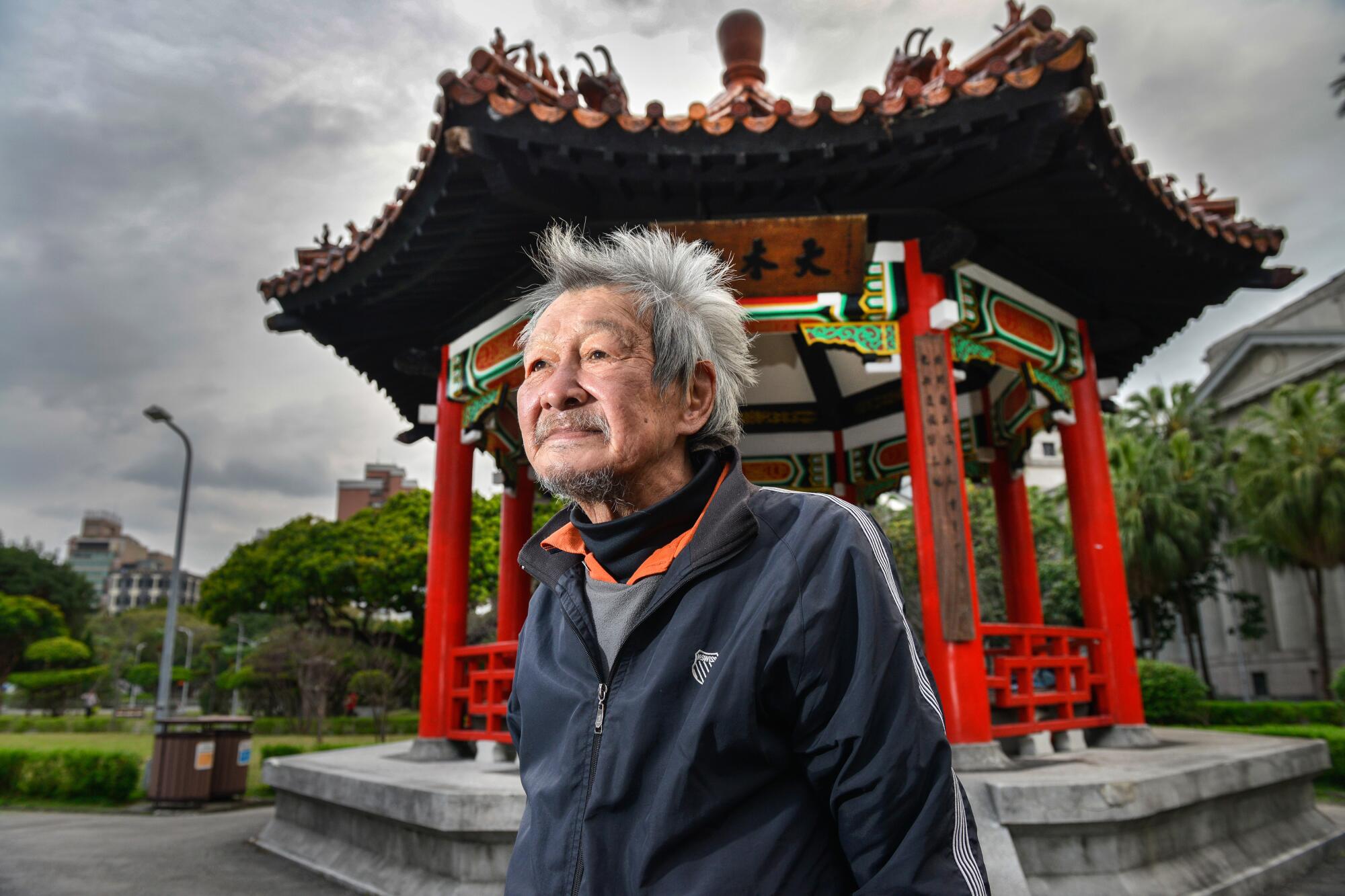
“Now that’s an interesting question,” the 56-year-old former janitor likes to say.
What was his last meal? How does he find food? Seated on a carpet of newspapers at the train station, he paused dramatically, his face contorting as he searched for precise answers.
From the dozen empty McDonald’s bags crumpled beside him, he had scrounged leftover French fries and hamburger buns. That was breakfast.
Sometimes, he drags empty bottles to a recycling center on the other side of the city, netting about 50 cents for half a day of walking — enough for some instant noodles or boiled tea eggs.
He did not want his photo taken and only gave his last name, Lee, because “people on the internet will laugh at us, discriminate against us.”
Other Taiwanese are kinder. Restaurant owners stop by with batches of leftover food. Bakeries unload stale bread.
Lee was laid off after more than 20 years as a janitor. He reads five newspapers a day, scavenged from trash cans. He claims to have AI — artificial intelligence. His smooth skin makes him look younger than his age. The top of his head is bald and shiny, while strands of thinning black hair reach almost to the collar of his navy blue jacket.
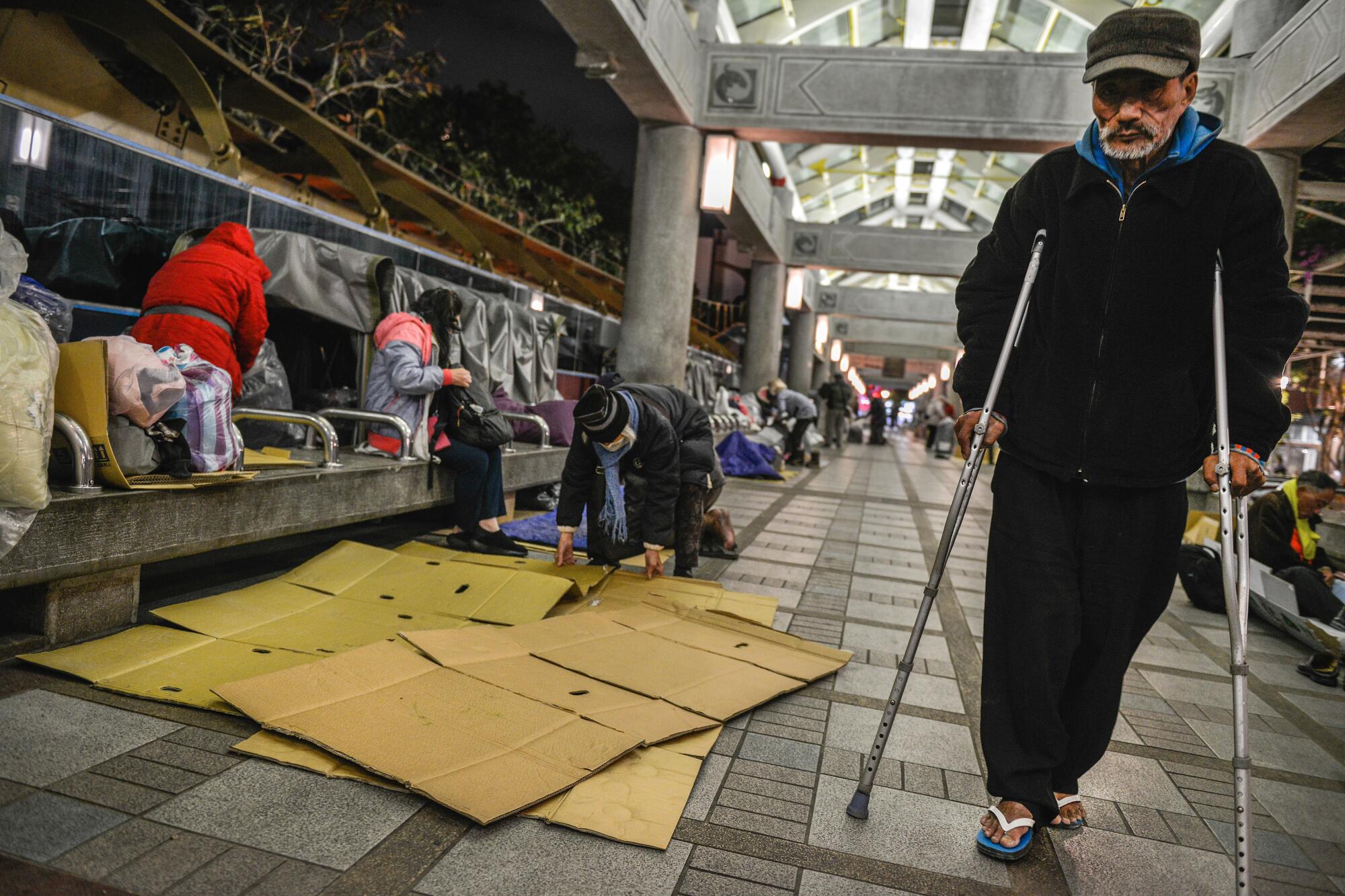
“I’m not looking for work,” he said. “I’m older. Nobody wants us.”
He has never been married and has no kids. He wants his older brothers to think he is still working. They do not know he lives here.
A stranger suddenly appeared, pressing a box of fried chicken and rice into Lee’s hands before rushing to the next homeless person.
Warren Sanchez owns a Cajun restaurant in Okinawa, Japan. He flies to Taiwan every few months to hand out meals.
He knows how it feels. He was homeless in Los Angeles for 10 years.
“It’s not just about being homeless,” said Sanchez, a Louisiana native. “It’s about you being counted, you mattering.”
::
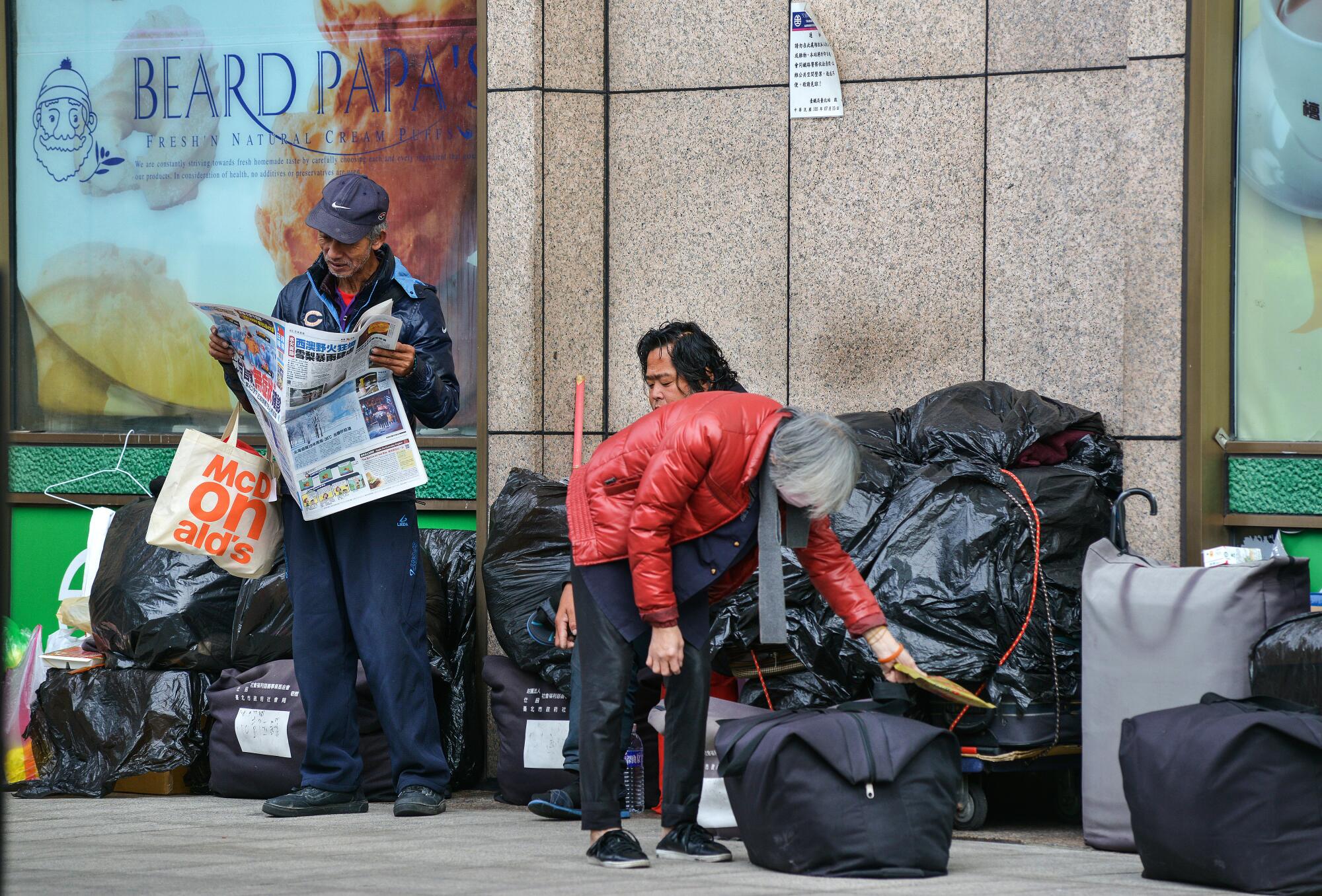
In this season of coronavirus, police officers patrolled Bangka Park, aiming thermometers at homeless residents’ foreheads and spraying their hands with sanitizer.
Hsu and other homeless people said they were not worried about catching the virus. Their world was small and did not include international travelers. They were barefaced. Elsewhere in Taipei, anxious residents waited in line for hours to purchase masks.
This old part of the city is home to a red-light district and many traditional food stalls. Despite the virus, people still turned up to bow to the gods at Lungshan Temple across the street and snack on oyster pancakes and pepper pork buns at the nearby night market.
Along the walkways of the small, rectangular park, old men hunched over Chinese chess. People clustered around bookies to wager on rows of numbers, scattering when police drew near.
The park’s homeless residents follow a strict schedule imposed by the city. They rise around 5 a.m. and put away their bedding and belongings in large duffel bags. Then, they sit, each in his or her customary spot, watching the park fill with day visitors.
Nearby convenience stores stock cooking wine, the elixir for the penniless, in the same section as whisky and chardonnay. Drugs are almost unknown among Taipei’s homeless population — too expensive, people say.
Those who are disruptive or violent are hauled away by police. Here, involuntary psychiatric commitments can last several months. In California, the maximum is three days.
Hsu’s friend, Lee Su-hui, has struggled with depression so severe she thought she might harm someone. The 63-year-old was once a homemaker and became homeless after splitting up with her husband. Her son is a recovering meth addict.
She has made her peace with living in the park. She prays at the temple every day and counts city social workers among her friends.
“We failures live together,” she said. “We share our stories. We understand each other. We are a family. We help one another.”
At 8:45 each night, the residents of Bangka Park retrieve their bedding in an orderly procession.
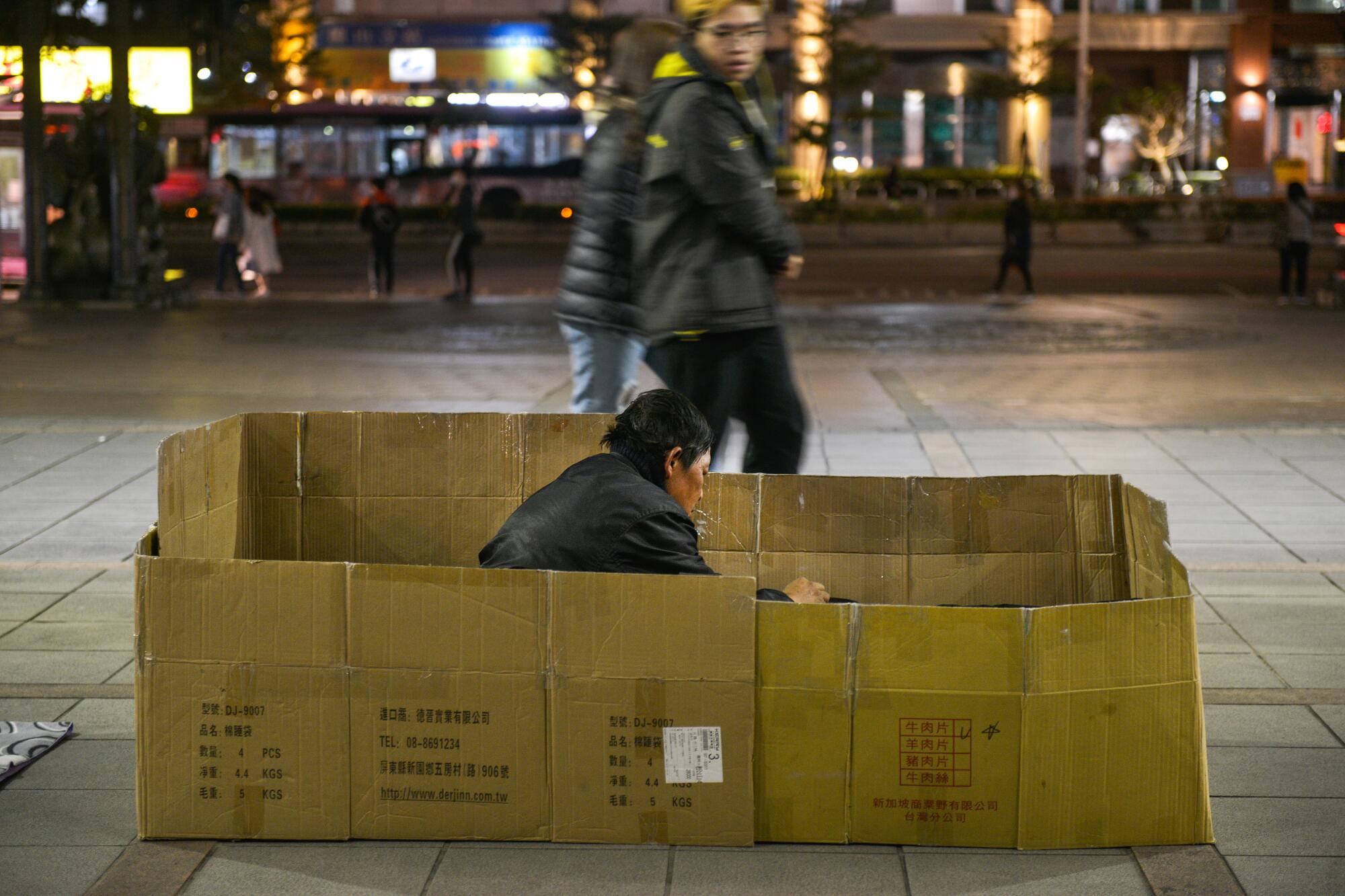
Kuo Ming-hong, 56, a former construction worker, methodically propped up some cardboard boxes to wall off a sleeping area.
He flicked the dirt off his flip-flops with a thumbnail, spread out a comforter and shed his worn black jacket. He took some money from his pockets, sealing it in a plastic bag. Finally, he removed his black baseball cap, smoothed his hair, lighted a cigarette and leaned back on his elbows.
Hsu sat cross-legged, chatting with a friend who had come to collect a debt — roughly $15. Hsu did not have it. He was trying to get a loan from his brother, but the phone rang and rang.
His arthritic knees had been bothering him. For months, he had not been able to stand all day for his sign-waving gig.
Maybe that weekend, he would be well enough to work.
More to Read
Sign up for Essential California
The most important California stories and recommendations in your inbox every morning.
You may occasionally receive promotional content from the Los Angeles Times.





